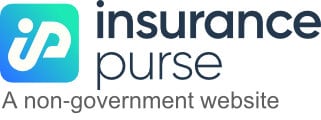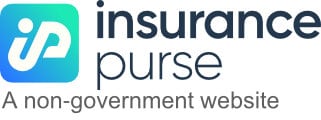[et_pb_section fb_built=”1″ theme_builder_area=”post_content” _builder_version=”4.23.4″ _module_preset=”default”][et_pb_row _builder_version=”4.23.4″ _module_preset=”default” theme_builder_area=”post_content”][et_pb_column _builder_version=”4.23.4″ _module_preset=”default” type=”4_4″ theme_builder_area=”post_content”][et_pb_text _builder_version=”4.23.4″ _module_preset=”default” theme_builder_area=”post_content” hover_enabled=”0″ sticky_enabled=”0″]
Individual Health Insurance Plans: Your Path to Personalized Healthcare
Individual health insurance plans are a vital aspect of today’s healthcare landscape, offering tailored coverage options to meet your unique needs. In this comprehensive guide, we will delve into the world of individual health insurance, exploring its benefits, considerations, and how to make the most of this essential tool for personal healthcare management.
Understanding Individual Health Insurance
What Are Individual Health Insurance Plans?
Individual health insurance plans, often referred to as private or personal health insurance, are policies that individuals purchase directly from insurance providers. These plans offer coverage for medical expenses, ensuring that you receive the care you need when facing illness or injury.
Why Choose Individual Health Insurance?
Individual health insurance plans provide several advantages:
-
Personalized Coverage: These plans allow you to tailor coverage to your specific healthcare needs, ensuring you get the services and treatments that matter most to you.
-
Flexibility: You have the flexibility to choose your healthcare providers, giving you control over your medical decisions.
-
Portability: Individual health insurance plans are not tied to your employer, making them ideal for those who may change jobs or work independently.
-
Comprehensive Benefits: Depending on the plan you select, individual health insurance can cover a wide range of services, including doctor visits, hospital stays, prescription medications, and preventive care.
Types of Individual Health Insurance Plans
When exploring individual health insurance options, you’ll encounter different plan types, each with its own features and benefits:
1. Health Maintenance Organization (HMO)
HMO plans require you to choose a primary care physician (PCP) and generally necessitate referrals from your PCP to see specialists. These plans often have lower premiums and out-of-pocket costs.
2. Preferred Provider Organization (PPO)
PPO plans offer a broader network of healthcare providers and do not require referrals to see specialists. While they offer more flexibility, they may come with higher premiums.
3. Exclusive Provider Organization (EPO)
EPO plans combine elements of both HMO and PPO plans. They typically offer a limited network of providers, but you can see specialists without referrals.
4. Point of Service (POS)
POS plans also combine features of HMO and PPO plans. They require you to choose a PCP and need referrals to see specialists. However, you can receive out-of-network care in certain situations.
Key Considerations When Choosing Individual Health Insurance
Selecting the right individual health insurance plan involves careful consideration of the following factors:
1. Coverage Needs
Assess your healthcare needs, including anticipated medical expenses, prescription medications, and any pre-existing conditions.
2. Premiums and Deductibles
Compare premium costs and deductibles to find a plan that fits your budget while still offering adequate coverage.
3. Network of Providers
Consider whether your preferred healthcare providers are in-network for the plan you’re considering.
4. Prescription Drug Coverage
Check if the plan includes coverage for prescription medications you may require.
5. Out-of-Pocket Costs
Review the plan’s co-pays, co-insurance, and maximum out-of-pocket limits to understand your potential expenses.
How to Maximize Your Individual Health Insurance
Once you’ve chosen an individual health insurance plan, you can make the most of it by:
1. Regular Check-Ups
Schedule regular check-ups and preventive screenings to catch and address health issues early.
2. Reviewing Your Coverage
Periodically review your insurance coverage to ensure it still aligns with your healthcare needs and adjust as necessary.
3. Utilizing Telemedicine
Take advantage of telemedicine services for non-emergency medical consultations and advice, especially in today’s digital age.
4. Staying In-Network
Whenever possible, seek care from in-network providers to minimize out-of-pocket costs.
5. Understanding Your Benefits
Familiarize yourself with your plan’s benefits, including what is covered, any limitations, and how to file claims.
Common Questions About Individual Health Insurance Plans
1. Can I Get Individual Health Insurance if I’m Self-Employed?
Yes, individual health insurance plans are an excellent option for self-employed individuals who do not have access to employer-sponsored coverage.
2. Is There a Best Time to Buy Individual Health Insurance?
The best time to purchase individual health insurance is typically during the open enrollment period, which may vary by state. However, certain life events, such as marriage or the birth of a child, may qualify you for a special enrollment period.
3. Can I Change My Individual Health Insurance Plan?
You can usually change your individual health insurance plan during the annual open enrollment period or if you experience a qualifying life event.
Conclusion
Individual health insurance plans offer a personalized approach to healthcare, allowing you to tailor coverage to your specific needs. By understanding the types of plans available, considering your coverage requirements, and staying informed about your benefits, you can make the most of your individual health insurance and ensure you receive the care you deserve. Unlock the benefits of individual health insurance and take control of your healthcare journey today.
[/et_pb_text][/et_pb_column][/et_pb_row][/et_pb_section]














